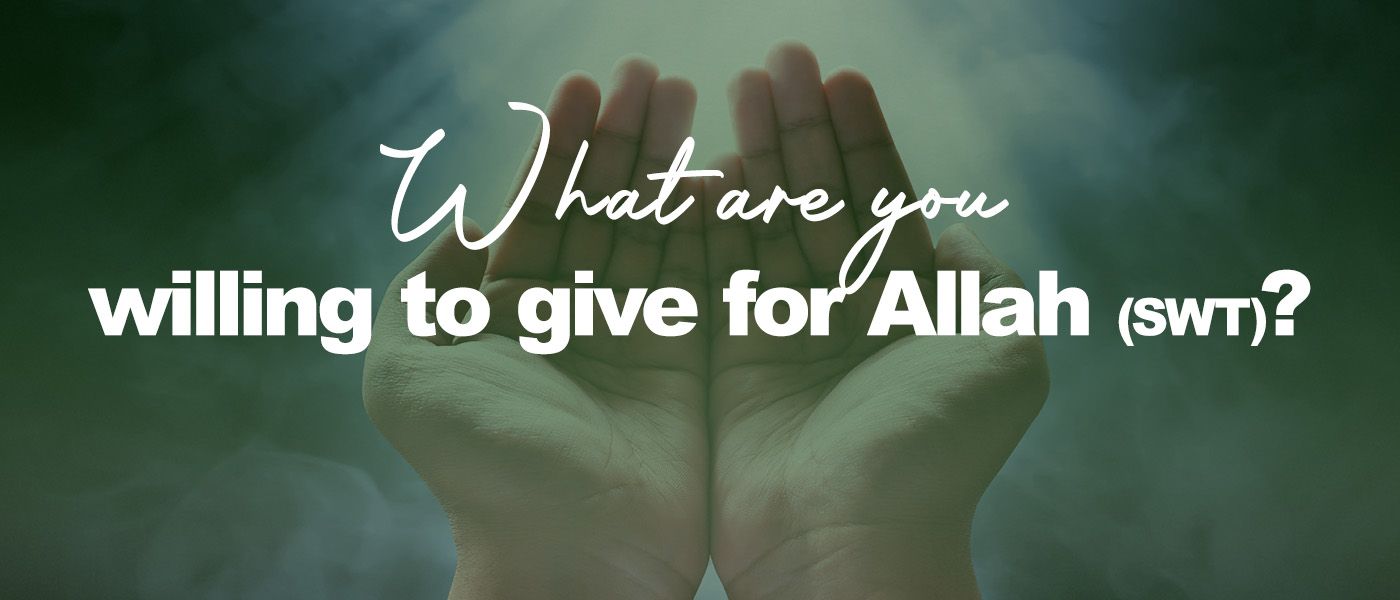It wasn’t late nights or the financial strain that would make it clear. It was the quiet moments when your parents would watch you sleep peacefully after they had given up something small for their comfort, or when they bit their tongue during a difficult conversation, choosing love over discipline and ego. In those moments, the parent would begin to reflect, “is this perhaps what Allah (SWT) wants from us when He speaks of sacrifice?” Is sacrifice just limited to animals slaughtered at Eid? Or is it parts of ourselves that are surrendered in love, trust, and obedience?
As Muslims, we grow up hearing about sacrifice (dahiyyah and qurbani), and the powerful story of Prophet Ibrahim (AS) and his son Prophet Ismail (AS). But sacrifice in Islam is not a historical ritual. It is a living principle. It’s found in the mother who wakes for Fajr despite the exhaustion she feels, the youth who walk away from worldly temptations for the sake of Allah (SWT), and the worker who declines dishonest earnings even when bills pile up.
This blog article will be a reflection on the concept of sacrifice in Islam on not just what it is, but what it asks of our hearts.
The Arabic word for sacrifice, also known as Qurban, comes from the root letters ‘q’, ‘r’, and ‘b’ which, put together, comes out to qrb and this means to draw near. A sacrifice doesn’t have to be about something that you give up, it’s an act of nearness to Allah (SWT). It is what true servanthood is all about. Whether it’s an act of offering an animal during Eid ul-Adha or letting go of our ego in everyday life, the purpose and rewards of sacrifice run deep in the veins of Islamic practice.
Sacrifice in Islam is not about loss, it is about what we gain by surrendering which are faith, taqwa, and the pleasure of our Lord.
We cannot talk about sacrifice without remembering Prophet Ibrahim (AS) and his beloved son Prophet Ismail (AS). Their story, preserved in Surah As-Saffat, doesn’t just show how obedient Prophet Ibrahim (AS) was, but it shows the peak of tawakkul, absolute trust in Allah (SWT). Allah (SWT) says, “Then when the boy reached the age to work with him, Ibrahim (AS) said, ‘O my dear son! I have seen in a dream that I must sacrifice you. So tell me what you think.’ He replied, ‘O my dear father! Do as you are commanded. Allah willing, you will find me steadfast.’” (The Clear Quran®, 37:102).
This sacrifice is a test of the heart. When Prophet Ibrahim (AS) lifted the knife, Allah (SWT) replaced his son with a ram because He wanted to teach us something greater. Allah (SWT) says, “That was truly a revealing test. And We ransomed his son with a great sacrifice […].” (The Clear Quran®, 106-107)
Not all sacrifices are visible. Some are made in silence such as the choice to wake for Fajr, to forgive when it hurts, to part with wealth for zakat, or to walk away from sin even when no one is watching. Our beloved Prophet (SAW) has said, “The strong one is not the one who overcomes people by his strength, but the one who controls himself while in anger.” (Sahih Bukhari)
Controlling anger is a sacrifice. Being honest when lying is another type of sacrifice. Every act of taqwa is a quiet declaration that “Ya Rabb, I choose You over my nafs.” With Eid ul-Adha coming up soon, keep in mind that you’re not just reenacting a historical event. It is a reconnection to your roots, and a reminder of submission, and a renewal of intention.
In The Quran, Allah (SWT) says, “Neither their meat nor blood reaches Allah. Rather, it is your piety that reaches Him. This is how He has subjected them to you so that you may proclaim the greatness of Allah for what He has guided you to, and give good news to the good-doers.” (The Clear Quran®, 22:37)
What reaches Allah (SWT) is not the ritual, it is the sincerity, the consciousness, and the devotion behind it.
Today, sacrifice may not look like placing a blade on the neck of an animal, it might mean choosing patience over pride in a marital dispute, leaving a haram income to feed your family, or guiding your children on the path of Islam even when the world offers glitter in every direction. In these moments, we walk the path of Prophet Ibrahim (AS), in our own small ways.
As you read this article, pause and ask yourself before clicking out:
- What in my life pulls me away from Allah (SWT)?
- What can I sacrifice, emotionally, spiritually, or materially, to grow closer to Him?
- Have I placed anything above my Lord?
Because the truest sacrifice is when we place Allah (SWT) first above all else. And what is the reward for those who give up something for the sake of Allah (SWT)? Something far greater than we could ever imagine, in shaa Allah.
May our lives be filled with sacrifices that bring us nearer to His mercy, and may our hearts never grow tired of saying, “Labbayk Allahumma Labbayk.”


